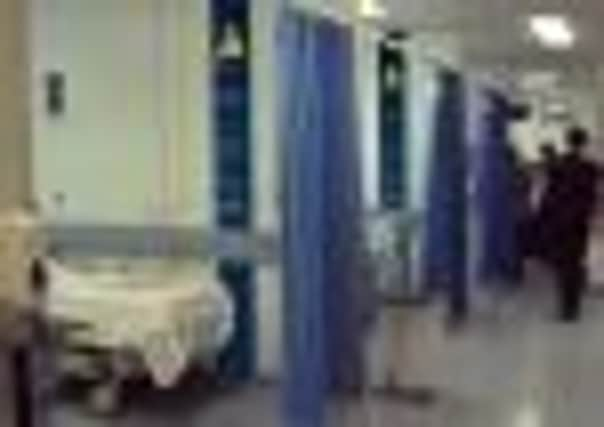Jayne Dowle: There’s still something sick at heart of the NHS


So, although the pledge to see 98 per cent of patients within four hours was criticised by those who argued that it compromised the making of clinical decisions, I really do believe that it was introduced with our best interests at heart. And now, guess what? Since the target was scaled back by Health Secretary Andrew Lansley, the number of patients spending more than four hours in A&E has jumped by 40 per cent, even though the threshold – 95 per cent – is now lower. Whatever way you look at it, that can’t be right.
I hope that you haven’t had to spend any time in an A&E department recently, but let me tell you: if you want evidence of how NHS morale has hit rock bottom, then you need go no further. In fact, if you drop in at a busy time, you might not get any further, for hours and hours.
Advertisement
Hide AdAdvertisement
Hide AdAnd let’s not ignore the fact that A&E departments are taking in more patients than ever before; last year there 15.8 million “unplanned attendances”, up more than 700,000 from the year before.
It doesn’t take a £1,000-a-day NHS management consultant to work out that this is because walk-in medical centres, like the one at Gateway Plaza in Barnsley, have been closed. And it can only get worse. The NHS Direct emergency helpline, never exactly the most fit-for-purpose service anyway, looks set to be stripped of 300 jobs when a new shift pattern is introduced.
My husband was admitted to A&E a few months ago. I’ll spare you the gorier details, but he suffered an epileptic seizure late one evening. It wasn’t entirely unexpected – he had just had a major operation on his brain – and I know from experience that most seizures can be managed at home. But should it happen so soon after his operation, the advice was to get him checked out immediately by a doctor.
I couldn’t fault the two paramedics who turned up within minutes, brought him round with oxygen and loaded him into the back of the ambulance. But there is only one word to describe how we were treated when we arrived at A&E – and bear in mind, we had been fast-tracked in by the kindly paramedics – and that word was contempt. Yes, contempt. The staff on the desk just seemed to regard him as a nuisance. He wasn’t yelling in pain, or demanding anything. He was simply dazed, and frankly, more than a little frustrated, lying there in the cubicle. The doctor wanted to run some blood tests, so we had to wait.
Advertisement
Hide AdAdvertisement
Hide AdWe were in the way, there was no doubt about that, but what could we do? So did any nurse come and see if we needed anything? Of course not. I sat and watched those nurses and the desk staff, and what I witnessed was a kind of resentful exhaustion. When I went up and asked if it was okay if Dave went to the toilet, the young nurse almost bit my head off. “Course he can,” she spat. “What you asking me for?”
I just smiled. I’ve got used to “just smiling” at the NHS. I’ve gone beyond getting angry with individual members of staff, because with a few evil exceptions, it is rarely their fault. They are more fed up with endless reforms and re-organisations than any patient. I’ve found that when you’re sat in a hospital for hours, whether it’s in A&E, in the queue for a consultant who has been called away for an emergency, or waiting that interminable wait for the drugs to take home from the pharmacy, “just smiling” is the only way to keep your own stress levels manageable.
So I “just smiled” and read my book as Dave snoozed and we waited for the blood tests to come back. In the end, we probably were in A&E for about four hours. By that point, I had stopped watching the clock go round. He was admitted to a general ward, and after observations, sent home to rest. But I got to thinking. I know you shouldn’t judge an entire health service on one case. He was only one patient, on one evening that turned into the early hours of the morning, and no-one died.
But that’s not the point. The point is that the whole experience was just so demoralising. It reminded me yet again that, all too often, this is not a good country to get sick in, especially if it is “unplanned”. And looking now at these new figures has reminded me of something even more serious than that. If we can’t get frontline emergency services right, then what hope have we for the rest of the NHS?